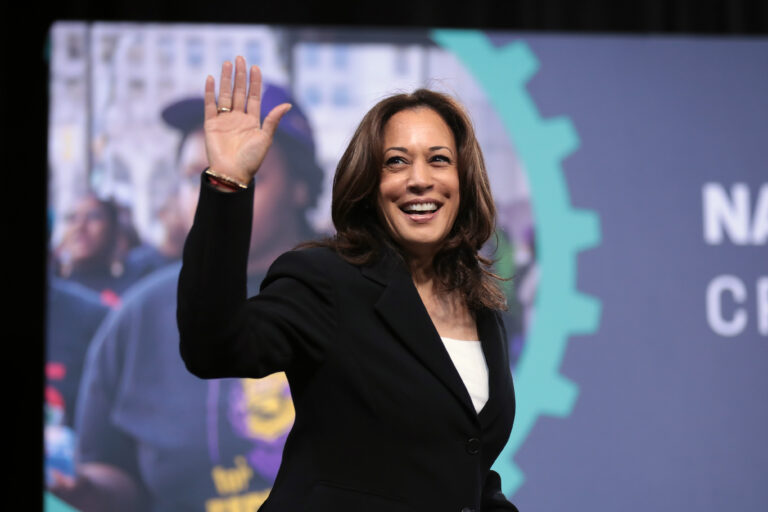Bibeka Shrestha is a student at Harvard Law School.
Uber acknowledged Thursday in a filing for its initial public offering that classifying its drivers as employees, rather than independent contractors, would require a fundamental shift in the ride-hailing app’s business model. Uber currently classifies its drivers as independent contractors, which excuses the company from providing benefits, overtime pay, and a slew of worker protections reserved for those designated as employees. This approach has been challenged on multiple fronts—Uber stated Thursday that more than 60,000 drivers have filed or plan to file cases in arbitration claiming they should be classified as employees instead, while rulings in California, France, and the U.K. also threaten Uber’s current scheme. Hoping to bypass the unfriendly California ruling, Uber has been negotiating with unions and state lawmakers to enact legislation that would provide workers with other perks or protections in exchange for retaining Uber’s independent contractor classification for gig economy drivers. Uber has also asked the U.S. Securities and Exchange Commission to amend regulations to allow Uber to compensate its drivers with equity. For the time being, Uber plans to offer its more than 1.1 million drivers in the United States cash bonuses ranging from $100 to $10,000, which the drivers may use to buy Uber stock at its IPO price.
The Texas Senate passed a pair of bills on Thursday to block municipalities from requiring private businesses to provide paid sick leave, vacation time, and health and retirement benefits to workers. The Senate voted along party lines, sending the measures to the Texas House for debate. Opponents voiced their concern that the legislation would unravel not only local sick leave and benefits laws, but also ordinances passed in Dallas, Fort Worth, Plano, and other cities to combat discrimination against LGBT workers. An amendment that would have explicitly shielded such local LGBT protections failed to pass. Texas Senator Brandon Creighton, R-Conroe, claimed the amendment would “muddy” the legislation, which he co-authored and argued was necessary to keep Texas business-friendly and protect jobs.
The Washington Post reports that employers have been paying Ovia, a popular fertility, pregnancy, and parenting app, to turn over intimate details about their workers’ personal lives, from the average time it took employees to get pregnant to the top medical questions they researched to how soon new parents planned to return to work. Ovia has set up an arrangement that allows employers to provide a special version of the app to their workers, who then log when they have had sex, how they’re feeling, the look and color of their cervical fluid, and information about their sleep, diet, and weight. Ovia then gives employers and health insurers access to aggregate data collected from workers, including their average age, number of children and current trimester, and the percentage of workers who had high-risk pregnancies, had C-sections, gave birth prematurely, or conceived after a stretch of infertility. Employers ostensibly want this data to help plan for health care spending and cut medical costs. But critics say companies may actually use the information to roll back health benefits or impose greater costs on employees, while simultaneously exposing workers to the risk that their private information will be exposed in a data breach.
New York City’s city council voted 40-4 earlier this week to prohibit most public and private employers from drug testing job applicants for marijuana use, The New York Times reported Thursday. Mayor Bill de Blasio is expected to sign the measure into law, with the new rules taking effect one year later. Drug policy and employment experts say this might be the first law of its kind, though the change would not cover all workers. The legislation would allow marijuana testing to continue for federal and state employees and contractors; transportation workers, such as truck drivers and pilots; as well as employees in law enforcement, construction, or positions that require supervising children or medical patients. Moreover, employers would still be allowed to drug test workers who appear to be under the influence of marijuana on-the-job.
Thousands of Stop and Shop workers in New England walked off their jobs on Thursday after they were unable to reach an agreement with the grocery chain on wage levels, take-home pay, and retirement benefits. The strike includes five locals of the United Food & Commercial Workers representing 31,000 Stop & Shop workers in Massachusetts, Connecticut, and Rhode Island. Also on Thursday, teachers in Sacramento went on strike for the first time in 30 years, as part of their push for better pay and smaller classes.






Daily News & Commentary
Start your day with our roundup of the latest labor developments. See all
May 15
Unions in Colorado urge Governor Polis to sign Senate Bill 5; more than 1200 Starbucks workers go on strike; and IATSE calls on President Trump to reinstate Shira Perlmutter.
May 14
District court upholds NLRB's constitutionality, NY budget caps damage awards, NMB or NLRB jurisdiction for SpaceX?
May 13
In today’s News and Commentary, Trump appeals a court-ordered pause on mass layoffs, the Tenth Circuit sidesteps a ruling on the Board’s remedial powers, and an industry group targets Biden-era NLRB decisions. The Trump administration is asking the US Court of Appeals for the Ninth Circuit to pause a temporary order blocking the administration from continuing […]
May 12
NJ Transit engineers threaten strike; a court halts Trump's firings; and the pope voices support for workers.
May 9
Philadelphia City Council unanimously passes the POWER Act; thousands of federal worker layoffs at the Department of Interior expected; the University of Oregon student workers union reach a tentative agreement, ending 10-day strike
May 8
Court upholds DOL farmworker protections; Fifth Circuit rejects Amazon appeal; NJTransit navigates negotiations and potential strike.